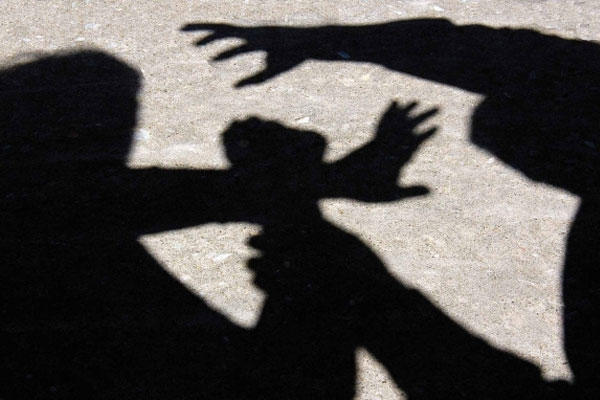A fast-track discharge upon request for sexual assault victims and a new app that will assist in reporting of sexual harassment and assault are among a handful of new initiatives the Navy is pursuing to crack down on the crime and support survivors.
Chief of Naval Operations Adm. John Richardson said he wants to have a system in place by this spring that will allow survivors to receive an expedited discharge from the service, but still keep access to support programs and counseling them might need. He said he's also working with personnel officials to make sure an alleged sexual assault victim and the alleged perpetrator cannot end up at the same command later in their careers.
"Certainly, if it's a substantiated sexual assault, it will be dealt with and that person will be disciplined appropriately and probably not continue on with their career," Richardson told reporters Thursday. "But let's say something happens and it doesn't result in a conviction or something along those lines. There's nothing hardwired to prevent those people from being assigned to the command in the future."
Richardson, who became CNO in September, said he wanted to send a clear message to the fleet about the importance of cracking down on sexual assaults and protecting and supporting survivors when a crime has been committed.
"I want to do everything I can to try and lower obstacles to reporting, certainly do anything I can to prevent any sense of re-victimization," he said. And for those persons who are survivors, I want to give them everything I can to recover as quickly as possible and get on with their lives."
The Navy, he said, is considering development of an app based on those in use on some college campuses that will make it easier to report sexual harassment or assault. Such a tool, he said, would remove stigma for survivors, making reporting data more accurate and possibly reducing stigma preventing male sexual assault victims from coming forward.
A 2014 report by the Rand Corporation found the Navy had the highest incidence of sexual assault with a male as the victim, with 1.5 percent of male sailors reporting having survived an assault.
The Navy is also working to expand a program in which civilian resiliency counselors have deployed aboard amphibious assault ships to provide help to survivors and others who might have qualms about reaching out to a chaplain. Richardson said the service planned to move that program ashore, installing counselors at larger bases to augment existing support programs for sailors.
And in the interest of reinforcing the message that all sailors are expected to intervene if they observe harassment or assault, Richardson said he's doing away with terms like "bystander intervention" to describe a sailor's responsibility to step in and defend a colleague in trouble.
"The term 'bystander' creates the perception of a choice, or haven if you will, for inaction," Richardson said. "That's not what a shipmate is. A shipmate always moves to help another shipmate."
Richardson said his time frame to implement all these initiatives was "brisk," and said the new programs would be presented to the fleet as they became ready.
"I'm not going to wait for the slowest thing to implement the fastest thing," he said.
--Hope Hodge Seck can be reached at hope.seck@monster.com. Follow her on Twitter at @HopeSeck.






























